TV heavyweight LOST premiered just over 10 years ago. To this day, it’s still recognized as one of the most powerful shows to grace TV networks, perhaps ever. Sadly, LOST is more recently known not for its intense storytelling and compelling mythology, but rather for its divisive final episodes. People who stuck with it from the beginning fall firmly into one of two camps: the finale-lovers or the finale-haters.
Warning: major LOST spoilers ahead
I was a finale-hater. I was a vocal critic, never missing a chance to tell people that LOST was “118 of the best hours of TV, and 2 of the worst.” I was the guy marching around telling everyone about how I felt ripped off. I was obnoxious about it: LOST was a series of questions without answers, and I felt burned by the writers. “We had a deal,” I’d say, “you got my undivided attention for 6 years, and eventually, you’d reveal the solution to the 6-season-long-mystery.” But the solution never came. Carlton Cuse and Damon Lindeloff moved to my permanent shit-list. They broke the implicit contract we’d made, that eventually, my diligent patience would be rewarded with answers.

Eventually, a Facebook friend of mine posted some glowing praise about LOST and I got into a back-and-forth about the rip-off finale, and it led to some Googling. There I found Chronologically LOST, a meticulously crafted edit of the entire LOST series, presented in chronological order, from Mother, Jacob, and the “Man in Black” through the last moments of the storyline, both primary and the alternative “flash-sideways” storyline. I downloaded the massive 67-gigabyte series and began with episode 1 of 101, captured immediately by the rich mythology.
Aside: I was a big mythology guy. I read blogs tracking unanswered questions and pending mysteries. I read theories, including the ones about the island being the gateway to spacetime, and the island being a spaceship, and the island being purgatory. I wanted to know more about the Dharma Initiative, the DeGroots, Alvar and Magnus Hanso, Richard Alpert, and the island itself. I wrote my own LOST theories, sharing my thoughts on my blog, speculating as the story unfolded, capturing my reactions in real-time. So it was no surprise that I was sucked back in right away.
In the early hours of December 1, 2014, I finished the entire series for a second time. And I’m in love again. It’s like Jacob touched me. It’s like I woke up in this timeline. Too much? Sorry.
See, the first time through, I was learning the story. And this time, I walked in with a rich tapestry of knowledge. I picked up on so, so much that I missed the first time through. Repeated lines (“don’t mistake coincidence for fate”), recurring jokes (“Scott/Steve”), minor details, knowing glances, character consistencies formed early on… so many juicy bits that I’d missed the first time through because it was like drinking from a firehouse.
More importantly, watching in chronological order meant no longer dealing with flashbacks and slow moving plots. Action was rapid, and different perspectives meant different understanding. For example: did you realize that Nicki and Paolo, a season 3 sidetrack/experiment, were actually around for quite a bit of the series? It makes Sawyer’s “Who!?” joke, hilarious in season 3, less funny, because they span quite a bit of time on that island!
There are a few new takeaways, things easier to see when the action is condensed. Let’s discuss a few:
- Locke and Jack are both frequently thick-headed idiot leaders. They often lead the group based on flimsy hunches, often turn out to be wrong, and rarely have any idea what they’re doing. Of my biggest frustrations is that characters continue to gravitate toward them despite their often misguided intuition and their insistence that they’re right. Now, we know in the storyline, Jack is stubborn and represents cold, hard fact, where Locke is stubborn because he refuses to give up his faith. But logically, this doesn’t compute: characters would, I would think, realize their leaders are acting like buffoons and stand up for themselves.

- The ending, where Jack takes over for Jacob, but rather than ruling for thousands of years, rules for mere hours before choosing his successor in order to make the ultimate sacrifice for the island? Genius. When I saw it live, I thought it was clumsy to move from leader to leader so quickly. It was wrapped up with the alt timeline and there was a lot of plot in a little time. It’s actually beautiful that Jack, who was often science-minded, opposed Locke, the faith representation, ended up protecting the island with his life.
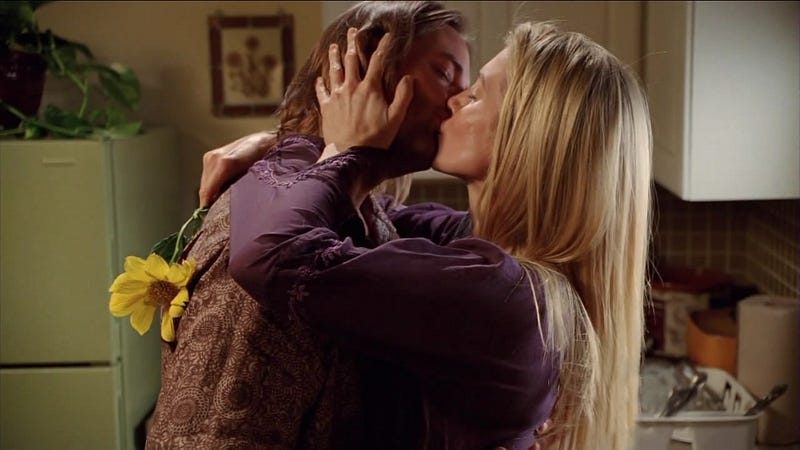
- I’m not sure the greatest love story of the LOST story arc. Is it Jack and Kate? Or Desmond and Penny? Is it Juliet and Sawyer? Or Claire and Charlie? Shannon and Sayid? Could it be Daniel and Charlotte… hinted in the alt timeline? Or even Bernard and Rose, the no-nonsense couple that served as a representation of committed love? I will say this: I didn’t fully absorb that Claire eventually fell for Charlie. The way I remembered it, she kept her distance and his love was unrequited. I’m obviously wrong, Claire did indeed fall in love with Charlie and fully embraced it as he undertook his mission at The Looking Glass station. But it was Sawyer and Juliet waking up in the alt timeline at the vending machine that had me choking back tears. Hard not to fall for Juliet… or Penny, to be honest. They created characters that are written to be attractive and compelling— and they are.
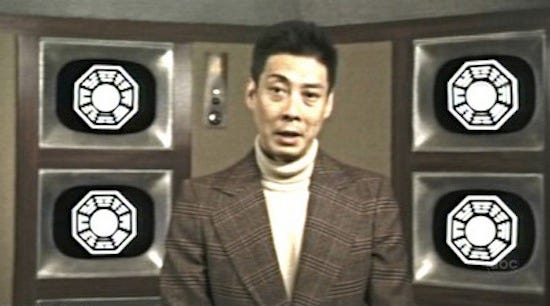
- So much of the mythology is explained subtly but adequately. Chronologically LOST concludes with a scene that appears to be nabbed from the season 6 DVD extras of Ben Linus visiting a Dharma Initiative warehouse in Guam, explaining several mysteries: the food drops, the fish biscuits, the pregnancy problems, the Hydra station and polar bears, Pierre Chang’s aliases, Room 23, the reason Dharma and “the Hostiles” don’t cooperate… I really think it’s critical to leaving a viewer satisfied. I’m struggling to think of any major mysteries critical to the plotline that aren’t revealed, save one: what is the island? I wanted this to be better explained; I can live with the vague answers. But I wanted to know: how was that that drain created? What is the light? How does the island move?
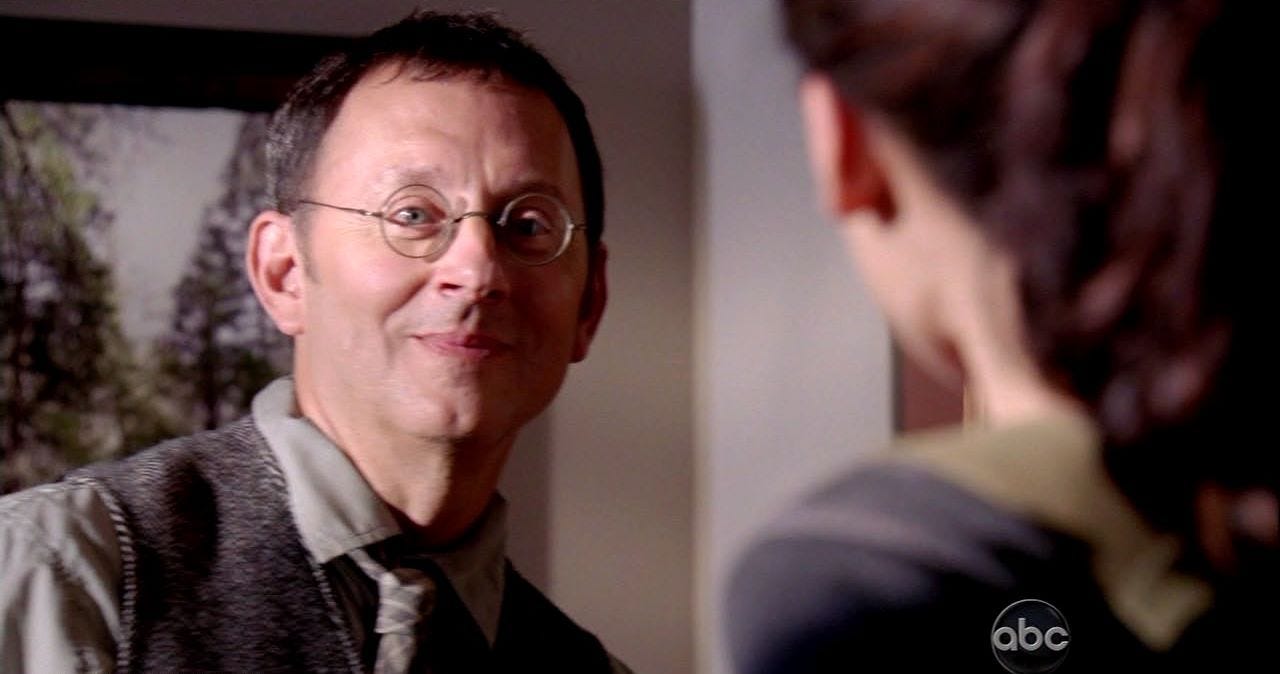
- Redemption in the alt timeline is obvious when it’s not twisted up in the conclusion of the island timeline. The alternate timeline is the happy ending that the island timeline couldn’t have. For example, most prominently, Benjamin Linus, Doctor of Modern European History, has to make a choice: usurp the job he craves as school principal, or have the principal write a recommendation letter all-but-guaranteeing Alex’s success in the future via her acceptable and scholarship to Yale. And unlike the island timeline, where his bluff cost Alex her life at the hands of Martin Keamy, in this timeline, he sacrificed himself for her. In exchange for this, he was not only introduced to Danielle Rousseau, but also paid the highest compliment by her: that Alex viewed him as a father figure. He corrected his major flaw from the other timeline. Sawyer was a good guy cop, Jack overcame his stubbornness to reconnect with his son, and Locke finally accepted help by accepting what he “could not do.”
The alternate timeline is the happy ending that the island timeline couldn’t have.
- Sun and Jin are the only part of the story that leave me underwhelmed. A few details: Sun returns to the island, abandoning her daughter, Ji Yeon. This is a sign of her love for Jin, but we have to remember: when the show started, she was running from him. Jin’s transformation from lovable fisherman to hard-hearted Paik thug was too much of a change for me, and I don’t know why Sun, whom he treated like crap for the entire “first season,” would want to open up and trust him again. I don’t understand the rekindling of their relationship, and I do’t understand how she put him above her daughter. Furthermore, I don’t know why Jin preferred to die with Sun rather than return to Ji Yeon. This to me is the sole example of a “candidate” whose story is hard to accept. It’s funny, the story is supposed to be about the connection and reconnection of Sun and Jin, in both storylines, and while it doesn’t really hold up the way I’d like, I’m inclined to forgive this artistic license.
- Why in the hell did anyone listen to what Michael had to say? He was a whiny brat. No one should have permitted him to lead the Walt rescue expedition. I’m glad he’s condemned to the island. He was a fool.
- Regarding the “Candidates:” all of the candidates were people who had either given up hope or had no tie to their “real world” lives. They needed the island as much as the island needed a new protector. Once Kate had Aaron and had a tie to the real world, she was no longer a candidate. Jacob watched for people who would be good and just island protectors who would never need to leave the island.
- It’s unclear to me if the “Others” knew that Desmond was in the hatch pressing the button for so long. Seems like a major task they wouldn’t want to leave to a single guy for that period of time. Richard must have known that Jughead was there. Ben was on the island when the Incident occurred. Why would they let that station continue to exist, particularly when they knew about the Pearl? Loose ends.
- The timeline of the hatch feels off to me. If Stuart Radzinsky and the D.I. constructed the hatch after the Incident in 1977, and the orientation video was copyrighted 1980, and Kelvin relieved Radzinsky, was Kelvin alone in the hatch for 20+ years?
- Here’s an amazing twist for you: I maintain that the bomb, Jughead, was never actually detonated by Juliet. You’d think it was, as Juliet hit it with the rock and the title card faded to white, rather than black. But I argue that what you witnessed was another white-sky timeshift. Here’s how we know:
- If Jughead detonated, it would have prevented there from being a hatch. But it obviously didn’t. The Incident had already occurred, Daniel explained to Chang that the drilling would lead to an unexpected pocket of energy. Prior to the bomb being in the drill site, we already saw the electromagnetic energy creating chaos, exactly the kind of thing that would require a computer and a discharge to prevent buildup.
- Critically: whatever happened, happened.
- It’s really that simple. That has to be, because Juliet was still alive and the rest of the group time-shifted from the 70’s to post-hatch explosion 2007 (we know because we caught up with the other characters who had returned to the island). The crew couldn’t prevent the need for The Swan, because The Swan existed, and whatever happened, happened. Furthermore, I think it’s safe to assume that the “failsafe” that Desmond executed was the detonation of the bomb inside the so-called “unique electromagnetic fluctuations” of the island that caused him to become unstuck in time.
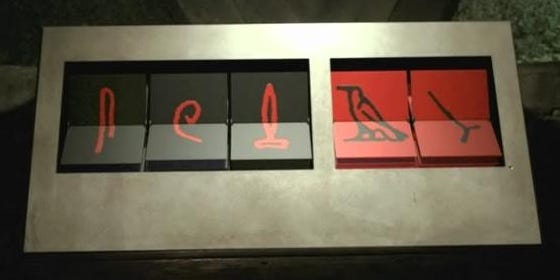
- What’s remarkable to me is that the story of LOST has such a deep, interwoven fabric, so many storylines, so many backstories, so many competing motivations, so many characters(!)… and yet, we’re capable of ingesting it all. There are the main characters, including the candidates, the “Tailies”, the “Others,” the “Dharma Initiative,” the “Freighter Crew,” the “Hostiles”, Widmore’s island crew, the Temple dwellers, the off-island researchers and financiers… the amount of information needed to properly parse the story is almost encyclopedic! It’s written such that one can go as deep down the rabbit hole as one wants: you can just watch, or you can dig deep into the mysteries and connections. We all know the “mobisodes/webisodes,” the Bad Twin book, the online companion pieces, the websites and games… they created an even richer involvement if you wanted to be fully enveloped. Such a beautiful experience the show turned out to be.
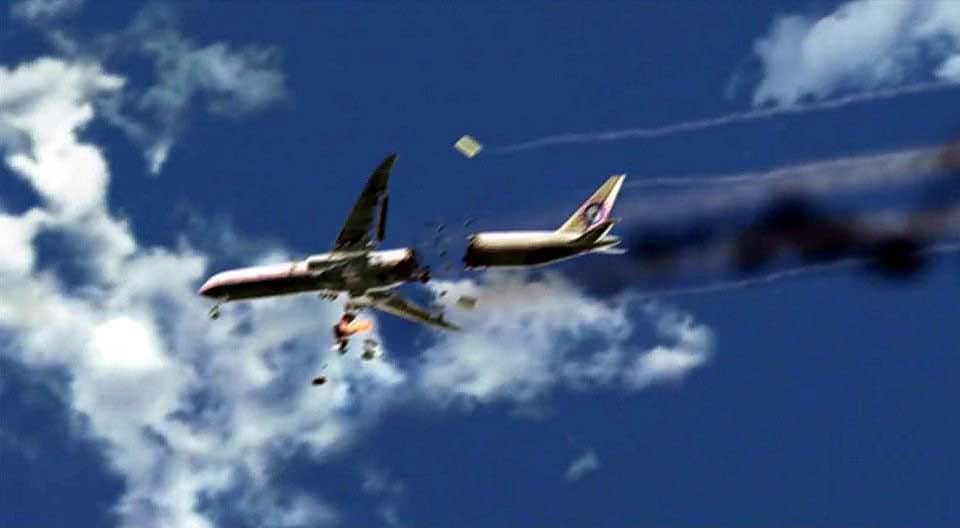
So, after watching LOST again in its entirety, I can only report good things. There is so much that seems well planned out: from Jughead to the Swan, from the faith vs science debates to the reversal of their characters, from “the Incident,” revealed in season 2 that played out in season 5, to the Purge. The writers may not have known where they were going when they started season 1 (or even season 2) but they sure stuck the landing on the storylines, even if the presentation was a little confusing.
I kept posting to Facebook about how angry I was about the finale of LOST, and it kept tallying up likes by the dozen. But now that I’ve rewatched it, I have to wonder: what did I want to happen? All the characters had happily-ever-afters in the alt timeline. And in the main timeline, most of the cast had nothing left for them but the Island and each other. That’s just how you end a masterpiece.

